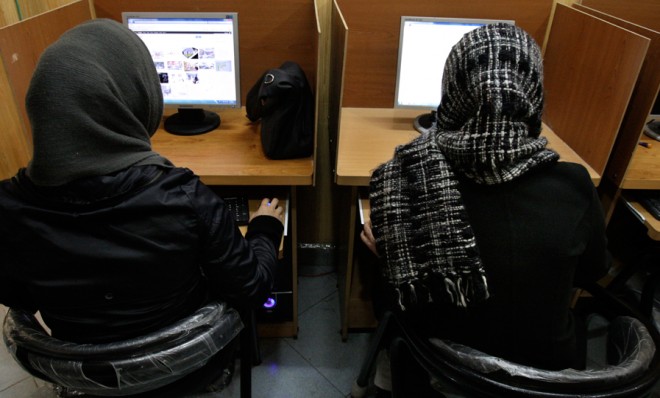Iranians get an oh so brief taste of Facebook and Twitter
Could the regime be loosening up?


A free daily email with the biggest news stories of the day – and the best features from TheWeek.com
You are now subscribed
Your newsletter sign-up was successful
Iranians managed to log onto Facebook and Twitter on Monday — without the help of anti-filtering software — for the first time since 2009, when the Islamist government blocked the sites to prevent anti-government activists from using them to organize demonstrations.
Internet users in the country celebrated. "God has freed Facebook!" one user posted, according to The Washington Post. But the elation was short lived: Access was cut off again on Tuesday, with officials blaming the fleeting taste of social media on a glitch.
Iran's critics tweeted their disgust:
The Week
Escape your echo chamber. Get the facts behind the news, plus analysis from multiple perspectives.

Sign up for The Week's Free Newsletters
From our morning news briefing to a weekly Good News Newsletter, get the best of The Week delivered directly to your inbox.
From our morning news briefing to a weekly Good News Newsletter, get the best of The Week delivered directly to your inbox.
But The New York Times' Thomas Erdbrink says the unblocking of the social media sites, however fleeting, might have been a sign that Iran's new president, reformist cleric Hassan Rouhani, is trying to deliver on promises to ease up on internet censorship. Here's what Erdbrink, one of the few Western journalists based in Tehran, says he's hearing in Iran:
Insiders say the glitch could have been caused by infighting between groups seeking to reopen the websites, who are struggling with hard-liners who continue to control the hardware to block websites. [New York Times]
Iranian hardliners have called Facebook a "Zionist tool," Erdbrink says. Since taking office in August, Rouhani and several of his ministers, however, have begun challenging the old guard's tough line on censorship, opening their own social media accounts and using them to comment on domestic issues and world affairs, including the crisis in Syria. Rouhani, on his official Twitter account, wished Jews a happy Rosh Hashanah this month.
Arash Tajik, an IT administrator in Tehran, tells Reuters that Iran's censors turned off the filters deliberately, but never intended to allow access for long. "They are testing what will happen if they remove the filter, and whether they can control the situation or not," Tajik said.
Still, skeptics caution against making too much of this brief taste of Facebook and Twitter, noting that Facebook access flickered on once before when state filtering tools were updated. And, as Yeganeh Torbati points out at Reuters, "any move to ease control will first have to be approved by the ruling establishment of conservative clerics and security officials, including Supreme Leader Ayatollah Ali Khamenei."
A free daily email with the biggest news stories of the day – and the best features from TheWeek.com
In other words, don't get your hopes up. Sometimes a glitch is just a glitch.
Harold Maass is a contributing editor at The Week. He has been writing for The Week since the 2001 debut of the U.S. print edition and served as editor of TheWeek.com when it launched in 2008. Harold started his career as a newspaper reporter in South Florida and Haiti. He has previously worked for a variety of news outlets, including The Miami Herald, ABC News and Fox News, and for several years wrote a daily roundup of financial news for The Week and Yahoo Finance.
-
 The environmental cost of GLP-1s
The environmental cost of GLP-1sThe explainer Producing the drugs is a dirty process
-
 Greenland’s capital becomes ground zero for the country’s diplomatic straits
Greenland’s capital becomes ground zero for the country’s diplomatic straitsIN THE SPOTLIGHT A flurry of new consular activity in Nuuk shows how important Greenland has become to Europeans’ anxiety about American imperialism
-
 ‘This is something that happens all too often’
‘This is something that happens all too often’Instant Opinion Opinion, comment and editorials of the day
